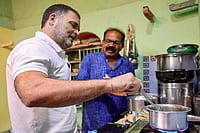The uPVC sector is increasingly recognized in India's construction landscape, particularly for doors and windows. Its reliability, insulation capabilities, and cost-effectiveness have made it a preferred choice over traditional materials like wood and aluminum. Modern architects and builders value uPVC for its insulating properties and durability against extreme weather. Companies such as Encraft are at the forefront, offering high-quality uPVC products that are flexible, eco-friendly, and long-lasting. However, several obstacles must be addressed for this industry to thrive in the Indian market.
Navigating Challenges For A Sustainable uPVC Future In India
Discover the challenges and opportunities facing the uPVC industry in India, including consumer awareness, sustainability, and environmental regulations. Learn how companies like Encraft are leading the way in championing sustainability and driving growth in the sector.

A major hurdle for the uPVC industry is the lack of consumer awareness. Many consumers and businesses are unaware of the benefits that uPVC offers compared to conventional materials. Wood and aluminum remain popular due to their familiarity and aesthetic appeal, despite advancements in uPVC design that allow for customization. Additionally, the initial investment for uPVC can be higher, deterring price-sensitive customers despite its long-term cost-effectiveness and low maintenance. The labor market presents another challenge, as skilled training is required for proper uPVC installation. Poor installation can lead to customer dissatisfaction and damage the product's reputation.
Environmental regulations pose another significant challenge. While uPVC is generally more sustainable than alternatives like wood, its production involves vinyl chloride, raising environmental concerns. Manufacturers will increasingly face pressure to balance production needs with sustainability as regulations become stricter. Furthermore, India's dependence on imported raw materials for uPVC production can lead to supply chain disruptions and higher costs, making the industry vulnerable to global economic shifts and geopolitical tensions.
Despite these challenges, the future of the uPVC industry in India appears promising. Rapid urbanization, smart city initiatives, and affordable housing projects are driving demand for robust, energy-efficient, and low-maintenance materials. uPVC meets these criteria, offering excellent thermal insulation and weather resistance while ensuring long-term durability. The growing emphasis on green building practices and sustainable infrastructure is likely to enhance the adoption of uPVC in both residential and commercial sectors. Advancements in technology are also improving the aesthetic appeal of uPVC, with diverse colors, finishes, and styles that align with various architectural designs, paving the way for further industry growth.
Leading the charge is Encraft, under the guidance of Avanish Singh Visen, which has expanded its product range while championing sustainability within the uPVC sector. The company has made significant investments in research and development for energy-efficient and recyclable uPVC products. Encraft's efforts in educating the market about the long-term savings and environmental advantages of uPVC have played a crucial role in shifting perceptions and boosting adoption. The initiatives taken by industry leaders like Avanish Singh Visen illustrate a broader commitment to advancing sustainability. By providing architects, builders, and consumers with comprehensive insights into the benefits of uPVC, Encraft is helping to steer the industry toward a future characterized by sustainability and quality. Their commitment to integrating innovative technologies and prioritizing environmental responsibility positions the uPVC industry in India for continued sustainable growth and evolution.
- Previous Story
 RSM US LLP Strengthens India Presence with New Gurugram Office And Amplifies Community Impact
RSM US LLP Strengthens India Presence with New Gurugram Office And Amplifies Community Impact - Next Story
























